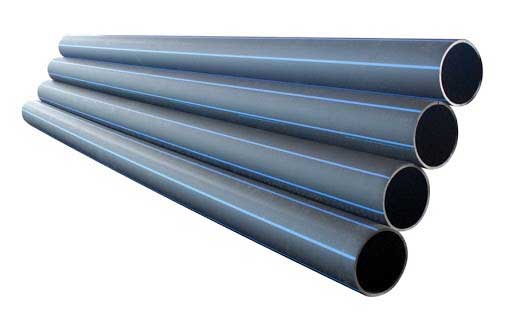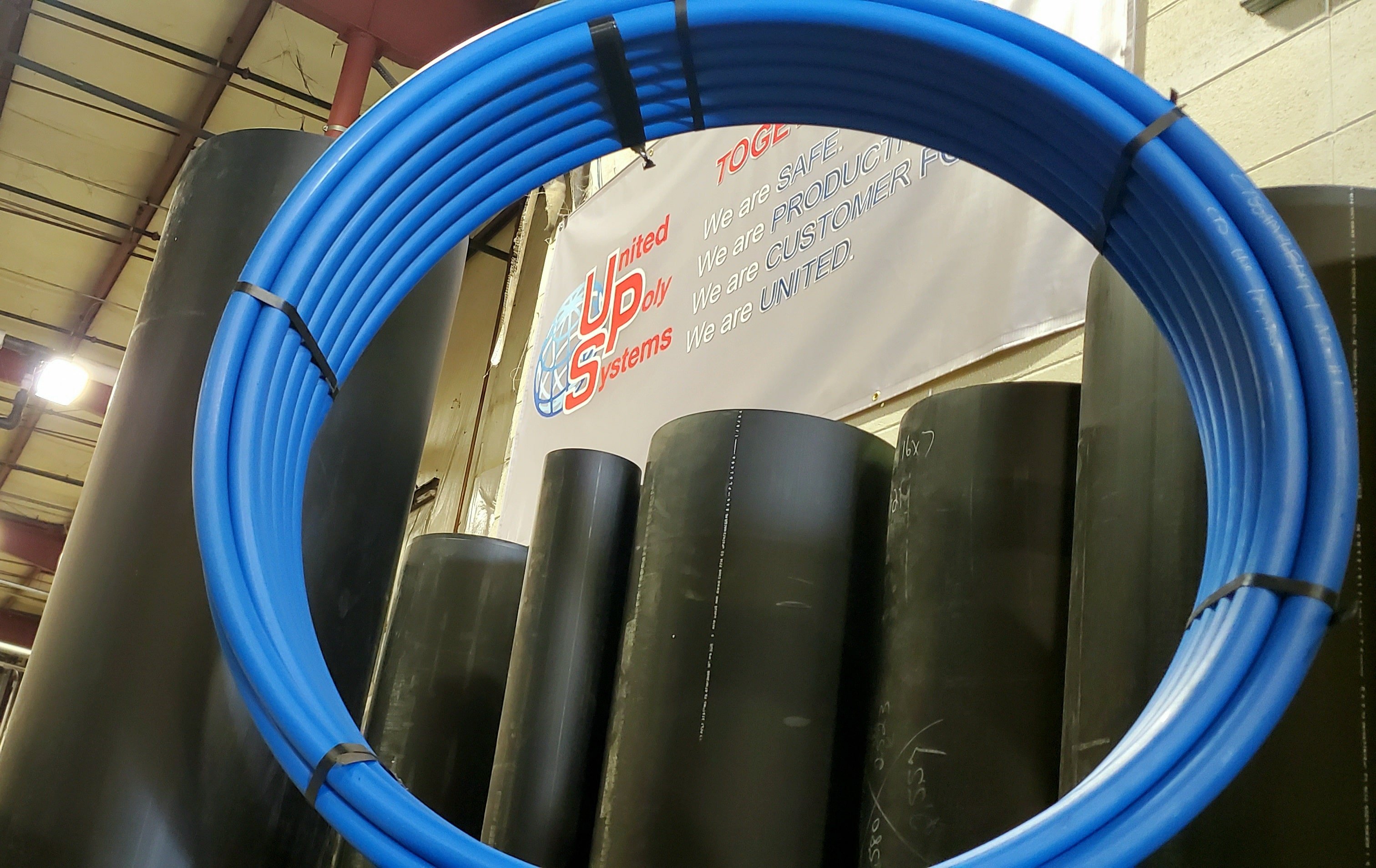In-Depth Look to hdpe pipe fittings Midland TX and Their Applications
Wiki Article
A Comprehensive Overview to the Numerous Uses HDPE Pipeline in Construction and Sector
HDPE pipelines have arised as an essential part in contemporary building and construction and industrial applications. Their unique homes, such as resistance to corrosion and light-weight design, make them appropriate for a wide range of uses. From water systems to agricultural irrigation, HDPE pipelines use remedies that boost performance and sustainability. Recognizing their diverse applications is necessary for professionals seeking to optimize facilities. What details advantages do these pipes give each field?Supply Of Water and Circulation Equipments
Water supply and distribution systems are crucial components of urban facilities, usually relying on high-density polyethylene (HDPE) pipelines for their durability and efficiency. These systems transport potable water from therapy centers to consumers, guaranteeing ease of access and safety. HDPE pipelines are preferred for their resistance to corrosion, chemicals, and extreme temperatures, which enhances their longevity and reduces upkeep prices. In addition, their light-weight nature permits less complicated installation and transportation, making them ideal for different city and rural applications.The versatility of HDPE pipelines enables them to be set up in limited areas and around barriers, lessening the demand for considerable excavation (Pipe Supplier American Plastics Midland). Their smooth interior surface area lowers friction losses, enhancing water circulation prices. As cities continue to grow, the demand for trusted supply of water systems boosts, placing HDPE pipelines as a sustainable option for modern-day infrastructure jobs. Their tested record makes them a preferred choice amongst designers and city planners alike
Wastewater Management and Treatment
Efficient wastewater monitoring and therapy are important for preserving public wellness and environmental high quality. HDPE pipelines play an important function in this procedure as a result of their toughness, resistance to rust, and capability to hold up against extreme chemicals. These pipelines are generally made use of in numerous applications, including sewer system, stormwater drainage, and wastewater treatment facilities. Their light-weight nature assists in less complicated setup and transport, lowering labor prices and time.In addition, HDPE pipelines have a smooth indoor surface that reduces rubbing loss, promoting efficient flow rates. They are additionally much less prone to leakages and failures contrasted to standard materials, guaranteeing that impurities are consisted of successfully. Their flexibility allows for flexibility in various soil problems, making them appropriate for varied environmental setups. As sectors increasingly focus on lasting practices, using HDPE pipelines in wastewater management systems lines up with objectives for minimizing ecological effect and boosting resource recovery.
Agricultural Irrigation Solutions
In farming settings, reliable watering services are crucial for enhancing plant returns and managing water resources. HDPE (High-Density Polyethylene) pipelines play an essential function in modern-day watering systems due to their toughness, adaptability, and resistance to corrosion. Their ability to endure high pressures makes them perfect for both surface and subsurface irrigation applications, ensuring consistent water circulation across fields.Farmers can make use of HDPE pipelines in drip irrigation systems, which check here deliver water straight to plant origins, lessening waste and promoting healthy development. Furthermore, these pipes are lightweight and very easy to set up, decreasing labor prices and installment time. Their long lifespan and reduced maintenance needs better improve their appeal in farming methods.
Furthermore, HDPE pipes are eco friendly, as they can be recycled and do not seep damaging chemicals into the dirt. This makes them a sustainable choice for farmers intending to adopt environmentally friendly agricultural approaches while taking full advantage of efficiency.
Industrial Applications and Processes
Convenience is a trademark of HDPE pipes, making them indispensable in numerous industrial applications and processes. These pipelines are widely made use of in chemical handling markets due to their exceptional resistance to a variety of corrosive compounds. HDPE's light-weight nature, incorporated with high tensile strength, enables simple installment and lasting performance sought after atmospheres.In the oil and gas field, HDPE pipes play a crucial function in transferring hydrocarbons and gases, many thanks to their sturdiness view website and adaptability - American Plastics HDPE Pipe Manufacturing. Additionally, they are utilized in mining procedures for the transport of slurry and other products, where traditional piping systems might stop working
Furthermore, HDPE pipelines are significantly utilized in producing facilities for water lines and wastewater management. Their capability to hold up against extreme temperatures and stress makes them suitable for a range of industrial processes. Generally, HDPE pipelines add substantially to performance and safety throughout diverse industrial applications.
Stormwater Management and Drain Systems
Stormwater management and drainage systems are crucial components in city framework, designed to take care of excess rainfall and decrease flooding risks. High-density polyethylene (HDPE) pipes are significantly utilized in these systems as a result of their longevity, adaptability, and resistance to deterioration. These pipelines successfully deliver stormwater away from populated locations, decreasing surface area overflow and protecting against waterlogging.HDPE's light-weight nature assists in much easier setup, reducing labor expenses and construction time. In addition, its inch to 2 inch reducer resistance to chemicals and environmental stress factors guarantees durability and integrity in various environments. In addition to conventional water drainage applications, HDPE pipes are additionally utilized in innovative remedies such as green framework, which includes rain yards and absorptive pavements.

Frequently Asked Concerns
Just How Does HDPE Pipe Compare to PVC Pipeline in Price?
Generally, HDPE pipeline often tends to be much more costly than PVC pipeline due to its boosted resilience and adaptability. However, long-lasting price factors to consider, such as maintenance and life expectancy, might prefer HDPE in specific applications.
What Is the Life-span of HDPE Pipes Under Varying Conditions?
HDPE pipes normally have a lifespan of 50 to 100 years, depending upon environmental conditions, installation practices, and usage. Aspects such as temperature level, dirt kind, and direct exposure to chemicals can considerably affect their durability.Can HDPE Pipes Be Recycled After Use?
Yes, HDPE pipes can be recycled after use. The recycling process involves melting down the product, permitting it to be repurposed into brand-new items, therefore advertising sustainability and lowering ecological influence related to plastic waste.Exist Any Type Of Certain Setup Obstacles With HDPE Pipes?
Setup challenges with HDPE pipes consist of appropriate jointing methods, guaranteeing sufficient trench conditions, and handling thermal expansion. In addition, skilled labor is needed to take care of customized devices, which can complicate the installment process in various settings.
What Qualifications Should I Look for When Buying HDPE Pipelines?
When buying HDPE pipes, one should look for certifications such as ASTM, AASHTO, and ISO, which validate high quality and compliance with industry standards, assuring toughness and performance in various applications. - Pipe Manufacturing Midland TXReport this wiki page